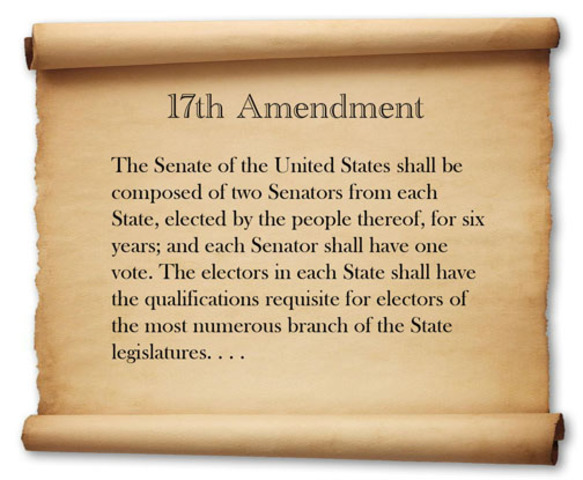
Federalism, the Key to Free Government
By Rodney Dodsworth – March 17, 2016
How can republican liberty be secured in a society of selfish and avaricious people?
Our Declaration of Independence specified two criteria for free government. It must be derived from the consent of the governed, and second, it must secure our natural rights. But there is a natural tension, for consent of the governed can be achieved via simple majority rule in a single house legislature possessed of legislative, executive, and judicial powers, that ignores the minority and jeopardizes their rights. The task for the framing generation was to account for both criteria such that they complemented rather than contradicted each other.
For many during the founding era, the answer was found in religious belief and virtue. It was thought that once the checks of conscience were set aside, when avarice and ambition rule, America was doomed to degeneracy. Their vision demanded a good and righteous people worthy of republican self-government.
The Framers had a different take. Being practical, political men, many of whom served in the confederation congress, they rejected reliance on religion and virtue, the “weaker springs of the human character.” In fits and starts and close calls during the summer of 1787, they developed and relied on the structure of their governing design to channel and direct ambition and avarice so that they would serve rather than destroy free government
In their quest to secure liberty, the framer’s design went far beyond the long recognized horizontal division of power into legislative, executive and judicial functions. Their keystone was the vertical separation of power in which national authority, sparingly doled out in enumerated powers with the remainder left with the states, was enforced by a senate of the states. They did not rely on what James Madison termed “parchment barriers” alone, such as a Bill of Rights to secure free government. With power so well divided, chopped up as never before, they justifiably trusted the natural inclination of men to pursue their interests would prevent the accumulation of tyrannical power. Enforcement of what soon became the 10th Amendment wouldn’t rely on the goodwill of self-interested, popularly derived politicians, nor scotus. Security of state powers would rely on the states themselves.
The framers’ reliance on federalism, of state participation was reflected in the way the constitution was ratified, in the Article V process, electoral college and especially the senate, whose members were appointed by and responsible to, the state legislatures.
Central to understanding why the 17th Amendment must be repealed, is the recognition that the extensive powers granted to the new government were designed with the assumption that the states would forever participate in it, that no less than thirteen distinct republican legislatures would continually cast watchful eyes over every proceeding of congress, the president and courts. It is why the states agreed to specifically relinquish additional powers in Article I Section 10, and submit to the Constitution and its pursuant laws as supreme law of the land.
It is through this gift to mankind, of a new system of confederal republican government, that relied on both the consent of the people and distinct smaller republics, that liberty could prosper. History, both ancient and our own since 1913, illustrate the instability of democratic republics. Our 103 year experiment in representative democracy is a failure. For practical purposes, Article I Section 1, which established the American Republic has been repealed. As in ancient republics, we are doomed to accelerating anarchy, followed by calls for a strongman to “do something” to restore order.
To reestablish the free government most of us know only from history texts, the 17th Amendment must go. To this end, there is no alternative to an Article V state amendments convention.
Hat tip to Federalism, The Supreme Court, and the Seventeenth Amendment by Ralph A. Rossum, 2001.
